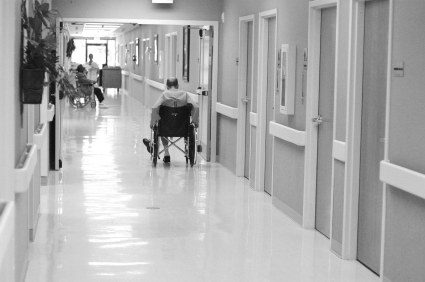Search
Nursing Homes Can Avoid Lawsuits By Properly Doing Their Jobs
 There’s a misconception amongst many people that trial lawyers are simply out to sue every nursing home that they can type into the caption of a lawsuit.
There’s a misconception amongst many people that trial lawyers are simply out to sue every nursing home that they can type into the caption of a lawsuit.
Truth is, most lawyers only want to pursue cases involving horribly run facilities that are responsible for causing significant harm or death to their clients.
In addition to being trial lawyers, lawyers representing injured people also need to be good business people. Unlike most lawyers who earn a living by simply performing a service or spending time on a matter, most plaintiff’s lawyers only earn a fee when they are successful in the prosecution of case they were retained for.
No recovery for the client — no fee for the lawyer. Additionally, trial lawyers are also the ones carrying the tab for the costs associated with bringing a lawsuit– the court costs, medical records, experts, depositions, ect. You lose the case, you don’t recover the out-of-pocket expenses that you paid for.
In short trial lawyers want the low hanging fruit. Surely, no case is perfect from a trial lawyers perspective. However, simply from an ethical and business perspective, I think its safe to assume we want to focus our time and resources into cases with the most elements in our favor.
I somehow came across an article by Kathleen Lourde, “Lawyers Baiting The Hook With Nursing Hours” which seemed to be partially written in response to the significant Skilled Healthcare Verdict. In the article, Ms. Lourde (correctly) focuses on how trial lawyers prosecuting nursing home negligence cases try to hone in on facilities lapses in staffing requirements in injury-related cases.
No doubt about it! Yes, again most of us trial lawyers do our best to help our clients by finding statutory violations that can be attributable to the particular injury. In many nursing home negligence matters under-staffing is
Ms. Lourde goes onto suggest 4 steps long-term care providers can take to ‘protect themselves from major jury awards:
- Providing quality care and meeting regulatory requirements
- Creating a system that ensures thorough and accurate documentation of every aspect of care and staffing
- Being prepared for possible testimony by ex-employees
- Providing new residents the opportunity to sign carefully crafted alternative dispute resolution agreements
I think most of the above suggestions are on track. However, I feel like these suggestions (and the thoughtful and lengthy explanations Ms. Lourde gives) can be summed up by: “Do you job and don’t piss anyone off”.
Over-simplification? Perhaps, but at the end of the day when facilities do what they are obligated to do and treat patients and staff with respect and dignity, there likely is rapid drop in both situations involving patient injury and subsequent lawsuits.
Related:
Lawyers Baiting The Hook With Nursing Hours (PDF) By Kathleen Lourde
 Nursing Home Law News
Nursing Home Law News

